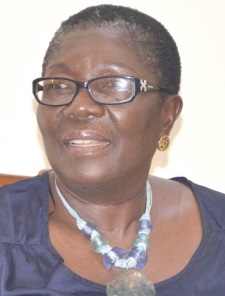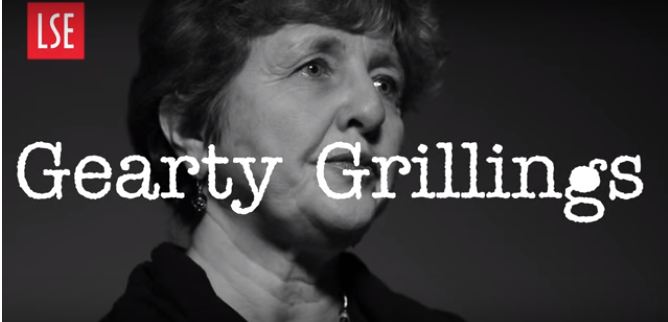 Executive Director of the Gender Studies & Human Rights Documentation Centre
Executive Director of the Gender Studies & Human Rights Documentation Centre
On setting up FIDA legal aid in Ghana: “I was in my late 40s. I didn’t have the challenges of little children as my children were grown up and in secondary school. I was then able to concentrate on what I wanted to do and what interested me. It would have been more difficult to take this on if I had had younger children. It would have been a big challenge and this is what I am seeing. What we realised is that we get the younger women who come out of school to offer voluntary service at FIDA but once they marry and start having children, they drop out because the challenges of combining home and work are difficult.”
On having a supportive partner: “My husband was and is still very, very supportive of the work I do. So for me that is something that has really driven me on because I can travel and he has no problem with that. He enjoys telling people about the work that I am doing. I think that I have been very, very lucky in that respect because I have had the full support of my husband right from day one.”
On the importance of learning: “I think that for me to be able to get where I am the commitment was there and, importantly, learning along the way has helped me. I did not come into women’s rights activism thinking that I knew everything: I was only a lawyer, I did not know all the issues.”
Lessons: “I would say that managing or running an organisation is not that easy. You must be committed. In terms of the staff that you’re working with, you must give them all the support they require. You must support them in terms of not only making the environment very easy to work in, but also giving them the learning support, because what you learn from books in school is not the same as what you learn on the ground. Help them to learn because at least in my experience I have seen that more and more young women are acquiring degrees. They do their undergraduate, their masters, and next they want their doctorate, and sometimes they come out without any practical experience. You need to guide them. You must also be accountable. To be respected as an organisation, you must be transparent in your dealings with all your partners and with the communities that you are working in.”
“When an opportunity comes, you should use it. If you think it’s beneficial go ahead with it.”





